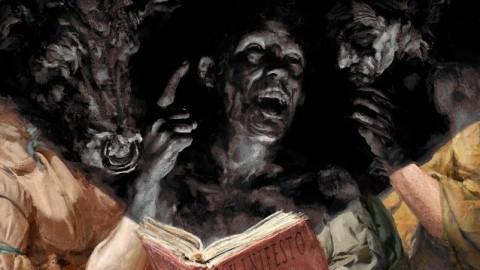
When true crime is done right, the genre can excite, educate and give a voice to the voiceless. We’re talking about shows like Liza William’s 2019 three-parter The Yorkshire Ripper Files: A Very British Crime Story, which kept millions on the edges of their seats and made points pertinent to the era’s institutional misogyny. Or 2015’s The Jinx, which potentially solved an entire case when suspected serial killer Robert Durst – unaware his microphone remained active – seemingly confessed to murder.
On the other hand, there are series like last year’s The Vow, in which former prominent members of the NVXIUM sex trafficking cult used nine episodes to muddy the waters of accountability. And Netflix’s Making A Murder, the excellent series about police corruption, until it unwittingly ignited a global conversation about its subject Steven Avery’s innocence. Since it wasn’t relevant to the show’s investigation into police wrongdoing, there was very little mention of the critical evidence which led to the scrapyard owner’s 2007 imprisonment.

Under Suspicion: Uncovering the Wesphael Case – a show desperate to say something, despite not knowing what – belongs in this latter camp much more than it does not. Released on Netflix last week, it digs back into the he high-profile case of Belgian politician Bernard Wesphael, who was acquitted of murdering his wife, Veronique Pirotton, in 2016.
Unusually, the docuseries features the involvement of Wesphael himself (the producers making the bizarre decision to interview him in the Ostend hotel room where his wife was found dead) as well as the clearly grieving sister and cousin of Véronique. Other interviews include friends of both the accused and the deceased. Pathologists. Journalists. And several fellow hotel guests, two of whom giggle through an anecdote about how they thought the woman’s screams coming from the room above were actually of a couple having sex.
The death of Véronique Pirotton is a complicated tale. In addition to the myriad of inconsistencies to be found within Wesphael’s telling of the events leading up to his wife’s death, it takes in the grotesque behaviour of her psychiatrist lover Oswald De Cock. Véronique maintained a relationship with her former partner during her marriage to Wesphael. It is revealed that De Cock has a history of misusing his knowledge of Pirotton’s alleged childhood abuse to forge connections that most likely contributed to her history of mental illness.
Under Suspicion is the latest example of – largely due to Making A Murderer’s phenomenal success in 2015 – Netflix accelerating its true crime conveyor belt to feed-clogging levels. Three months into the year and the streaming giant has already brought us The Ripper, Night Stalker: The Hunt For A Serial Killer and a mediation on the state of true crime media, be that intentional or otherwise, The Vanishing At The Cecil Hotel. Ryan Murphy – yes, the TV mogul who made Glee – is making a Jeffrey Dahmer biopic due in late 2021.
Of course, it would be wrong to assume that the genre is in any way young. People have always wanted to understand wrongdoing. In 1617’s China, during the late Ming Dynasty, Zhang Yingyu’s compendium of criminality The Book of Swindles was published. With the format refined by Truman Capote’s seminal 1966 novel In Cold Blood, society’s obsession with the evil that people do has swelled. And yet the genre was for decades, television’s guilty secret. Tawdry. Tucked away. Popular but not promoted. More than any other party, it was Netflix that changed that. And more than any other party, it is Netflix who have benefitted from it.

However, if true crime storytelling is to remain part of Netflix’s strategy to engage viewers – and it seems highly likely that it will – the streamer should endeavour to tell crime stories with insight, clarity and compassion. In all these regards, Uncovering the Wesphael Case fails. On multiple occasions, the series lingers on the dead body of a mother. It muddies an already complex story with disrespectful tangential themes, including one of Wesphael’s advocates shamefully describing Pirotton as a “nymphomaniac”. And it offers little beyond blurring the cohesion of facts and inviting unhelpful speculation more befitting a kangaroo court than a high-profile murder trial.
There was a documentary Netflix could have made about the death of Véronique Pirotton, principally about the misfortune this dynamic woman had in her life intersecting with a procession of very shitty men. Crime is a constant of human life. There are often stories that need to be told. But Netflix should take heed; why and how are vital components in doing so.
The post ‘Under Suspicion: Uncovering the Wesphael Case’: proof that Netflix’s true crime strategy needs refining? appeared first on NME.




